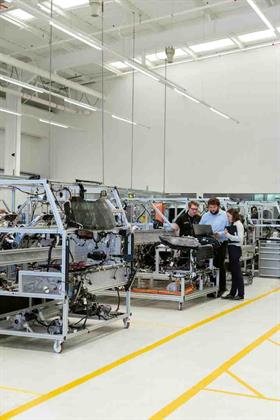
Odoo API Sync for Shipping Carriers Like FedEx, UPS & DHL to Automate Logistics
July 10, 2025
Understanding API Integration Between Odoo and Shipping Carriers
Real-time shipping updates, precise tracking, and prompt delivery are essential in today's logistics landscape. By using APIs to integrate Odoo ERP with leading shipping companies like FedEx, UPS, and DHL, data can move across systems with ease. By automating order dispatching, shipping label creation, real-time tracking updates, and cost estimates, this relationship reduces human error and eliminates manual labour. API synchronisation also contributes to a better user experience by providing real-time updates and more transparency.
Your company can bridge the gap between external logistics suppliers and ERP operations by utilising an odoo api integration service. From purchase confirmation to package delivery, this guarantees end-to-end automation for each shipping step. This kind of connection increases operational efficiency and scalability in addition to accuracy and speed, especially for companies that deal with high-volume logistics. Businesses can save time, enhance traceability, and lower the chance of delivery problems by immediately syncing shipping records with the ERP.
Key Benefits of Automating Shipping Through Odoo and Carrier API Sync
Real-Time Shipment Tracking: Customers and internal teams can track the shipment in real-time without manually switching to a carrier’s website. This enhances transparency, minimizes customer inquiries, and strengthens trust, as both parties are updated on parcel location and estimated delivery timelines directly from the Odoo dashboard.
Auto-Generation of Shipping Labels: With integration in place, shipping labels are generated automatically using carrier standards. This reduces manual input, avoids formatting errors, and speeds up dispatching. Employees can print labels directly from Odoo, making the shipping process faster and more streamlined.
Accurate Shipping Cost Calculation: Carrier APIs fetch real-time rates based on weight, dimensions, and destination. This enables businesses to show accurate shipping charges at checkout or invoicing, preventing revenue loss from undercharging and improving customer satisfaction with transparent pricing.
Time-Saving Automation: Automating repetitive tasks like label creation, carrier selection, and tracking updates saves hours of manual work. This allows staff to focus on more strategic areas while the ERP handles logistics-related workflows in the background.
Reduced Human Error: Manual data entry often leads to mistakes that result in delivery delays or misplaced orders. API integration ensures data consistency between Odoo and the shipping carriers, drastically minimizing errors in address inputs, item weights, or service types.
Faster Order Fulfillment: Integrated systems automatically move orders from sales to shipping with minimal intervention. This speeds up the entire process resulting in quicker deliveries, satisfied customers, and better retention rates.
Role of Odoo API Integration Services in Streamlining Shipping Operations
Order-to-Dispatch Automation: Integration services allow orders in Odoo to be dispatched automatically using carrier rules and preferences. This removes the need for manual coordination and speeds up logistics cycles.
Unified Data Exchange Between ERP and Carriers: The Odoo API integration service ensures a two-way data sync between the ERP and external shipping providers. It allows updates like shipping status, delivery confirmation, and tracking numbers to flow back into Odoo without manual input.
Customized Shipping Workflow Configuration: Experts can tailor the shipping process within Odoo to match business-specific needs like setting default carriers, applying packaging rules, or routing based on regions. This customization improves workflow control and accuracy.
Multi-Carrier Shipping Support: Businesses using multiple carriers benefit from centralized control within Odoo. The integration allows dynamic switching between FedEx, UPS, or DHL based on cost, delivery speed, or customer preference.
Real-Time Alerts and Tracking Updates: Customers receive automated tracking updates via email or SMS, reducing support requests. Internally, teams stay informed of any delivery issues in real-time, enabling quick response to exceptions.
Smart Rate Shopping and Carrier Selection: API integrations enable businesses to compare rates and delivery times across carriers directly within Odoo. This helps in selecting the most cost-effective and reliable shipping option for each order.
Return Label Management and Reverse Logistics: A well-implemented Odoo API integration service also facilitates reverse logistics by automating return label creation, shipment pickup scheduling, and status updates, improving the post-sale experience.
Why Logistics Companies Need Seamless ERP-Carrier Synchronization
To Reduce Manual Workload: Logistics teams often deal with high volumes of shipments daily. A synchronized system eliminates repetitive data entry, letting them focus on exception management and value-added services.
For Faster Shipping Operations: Synchronization accelerates the transition from order confirmation to parcel dispatch. Speed matters in logistics, and integrated systems ensure quicker, error-free shipping workflows.
To Offer Better Customer Experience: Real-time tracking, timely updates, and predictable delivery dates build trust with customers. Seamless API sync ensures all such features work flawlessly within your ERP system.
For Cost Optimization: Syncing carriers allows automatic selection of the most cost-effective shipping methods. Businesses can reduce expenses by comparing shipping rates and delivery speeds across carriers from within Odoo.
To Maintain Regulatory Compliance: International shipping requires accurate documentation and regulatory compliance. Integration ensures these documents are generated correctly and transmitted to carriers automatically, reducing legal risk.
For Centralized Shipping Management: Logistics managers benefit from having a single dashboard (Odoo) to oversee shipping across multiple carriers, simplifying oversight and improving operational control.
To Scale Logistics Operations Efficiently: As logistics volumes increase, manual systems become bottlenecks. ERP-carrier sync ensures scalability without needing proportional growth in manpower or infrastructure.
Common Pain Points Without Proper ERP and Carrier Integration
The process gets extremely fragmented when logistics companies function without an appropriate ERP and carrier interface. Order confirmation, label creation, and package tracking require staff to switch across systems, which delays processing and raises the possibility of mistakes. Workflow is slowed down and reliance on human knowledge is increased when carriers are coordinated manually. Additionally, clients are frequently kept in the dark about the status of their shipments, which results in discontent and support costs.
Businesses can solve these inefficiencies by implementing an odoo api integration service. It enables real-time updates, automated document generation, and centralized control by establishing a single ecosystem in which data effortlessly moves between Odoo and carriers. For shipment management, businesses no longer need to rely on separate tools or different logins. As a result, activities run more quickly, errors are reduced, and the final consumer has a far more polished experience. Integration is a logistics requirement for contemporary firms, not just a technical improvement.



















